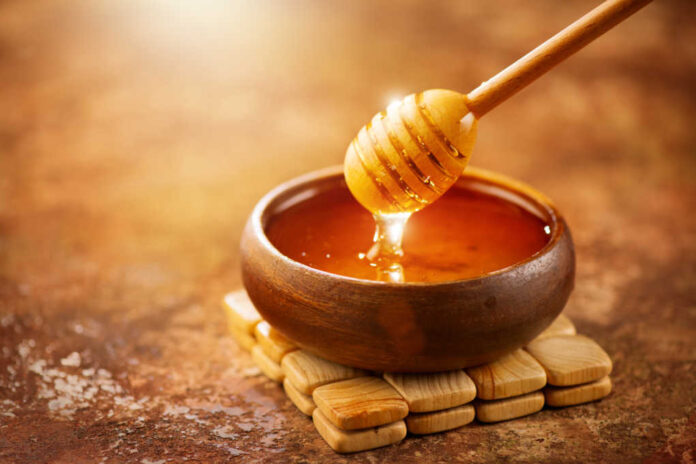
Honey is a naturally sweet treat with several health benefits, whether it’s in your tea, spread on toast, or spread on your skin.
Manuka honey is a monofloral variety made by bees who collect nectar from the flowers of the manuka tree, native to New Zealand and Australia. When Manuka honey is exported from New Zealand or Australia, it must first pass through a series of tests to gain the authentic Manuka honey designation.
Healing With Honey
All, or most, types of honey appear to have antioxidant, antimicrobial, anti-inflammatory, antiproliferative, anticancer, and antimetastatic effects. Honey has traditionally been used to treat many ailments, including gastrointestinal disorders effectively, wound healing, and even possibly cancer.
The high sugar and low pH (high acidity) inhibit the growth of microorganisms, making honey effective against infections. Many types of honey contain hydrogen peroxide, which also has antibacterial properties.
Manuka honey is special because even though it has relatively low amounts of hydrogen peroxide, it contains high amounts of methylglyoxal (MGO), which gives the honey a different set of antibacterial properties.
There has so far been no indication of microbial resistance to the complex mixture in honey. Antibiotic resistance occurs when microorganisms evolve to defeat or subvert the drugs designed to kill them. This process suggests that honey may continue to be an effective antibacterial agent while other antibiotics become less effective.
Honey is probably the oldest known wound healing agent and has been used successfully for thousands of years. Honeys antibiotic, anti-inflammatory, and antioxidant activities appear to help clean out and stimulate the healing process for mild cuts and burns.
Many cancer treatments are apoptosis inducers. Apoptosis is the natural and healthy process that cells are programmed to die after fulfilling their purpose. When apoptosis doesn’t happen correctly, cancerous tumors can result. The apoptotic properties of honey make it a natural chemotherapeutic that can potentially fight against cancers.
Using Manuka Honey
When you pick up a Manuka honey product, you’ll see a Unique Manuka Factor (UMF) rating between 0-16. This number indicates the level of MGO and its precursor, dihydroxyacetone, in the honey. A higher number means more of these compounds and, therefore, more benefits.
By mixing it into your food or tea, you can get the great nutritional benefits of honey while adding a sweet flavor.
If you are allergic to other types of honey, you will probably also be allergic to Manuka honey.






















